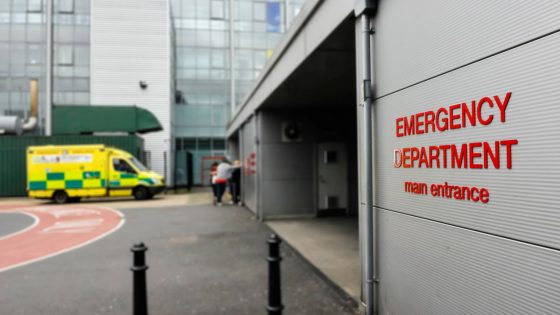A major report on the health service has been published in which it is described as being “in serious trouble”.
The rapid review by Lord Darzi was completed in just nine weeks and sets out the problems in the NHS and themes for the government to incorporate into a 10-year plan for reforming the health service.
Lord Darzi, a widely respected surgeon and former health minister, insisted the NHS can be fixed.
His report detailed the following issues:
• The health of the nation has deteriorated, with more years spent in ill health. Contributing factors – over the past 15 years – include poor quality housing, low income and insecure employment. The result is the “NHS has faced rising demand for healthcare from a society in distress”.
• There has been a “surge” in multiple long-term conditions, including a rise in poor mental health among children and young people. Fewer children get their vaccines and fewer adults now participate in things such as breast cancer screening.
• Waiting times targets are being missed across the board, including for surgery, cancer care, A&E and mental health services. “Long waits have become normalised” and “A&E is in an awful state”.
• People are struggling to see their GP. “GPs are seeing more patients than ever before, but with the number of fully qualified GPs relative to the population falling, waiting times are rising and patient satisfaction is at its lowest ever level.”
• Cancer care still lags behind other countries and cancer death rates are higher than in other countries. There was “no progress whatsoever” in diagnosing cancer at stage I and II between 2013 and 2021. However, more recent figures show some improvement.
Read more
UK cancer ‘lagging behind’ other countries
Clapping for NHS ‘may have been dangerous’
8am appointment scramble ‘won’t end without funding’
• Progress in cutting death rates from heart disease has stalled while rapid access to treatment has deteriorated.
• The NHS budget “is not being spent where it should be” and too great a share is being “spent in hospitals, too little in the community, and productivity is too low”. Too many hospital beds are taken up with people needing social care.
• Between 2009 and 2023 the number of nurses working in the community fell by 5%, while the number of health visitors dropped by nearly 20%.
• At the start of 2024, 2.8 million people were economically inactive due to long-term sickness, with most of the rise since the pandemic down to mental health conditions.
• Raids on capital budgets have left the NHS with crumbling buildings and too many outdated scanners, and “parts of the NHS are yet to enter the digital era”.
• The NHS delayed, cancelled or postponed far more routine care during the pandemic than any comparable health system.
• Too many NHS staff are “disengaged” and there are “distressingly high levels of sickness absence”.
Source Agencies


